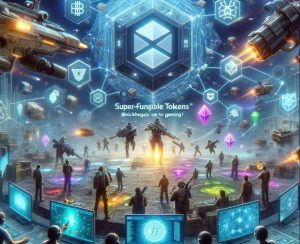Solana (SOL): Will the fastest blockchain fail?
3 min readDespite massive losses in all cryptocurrency and the general negative trend in the financial markets, looking at the Solana course, one wonders what may have happened in the past few weeks. Shortly after the turn of the year, the cryptocurrency was still fighting with Cardano for 5th place among the largest cryptocurrencies. At the time of writing, it is trading at a market cap of $28.7 billion, current price: $91.57. The SOL price peaked on November 6 last year at $259.96, but then the misfortune took its course:
Solana: Failed transactions
Solana fell victim to DDoS attacks in December 2021 and January 2022. Previously, network outages occurred due to “excessive duplicate transactions”. Most recently, the network was idle for a full 48 hours between January 22 and January 23. On Twitter, users complained that they could no longer transfer SOL tokens.
However, co-founder Anatoly Yakovenko tells:
It is important to reiterate that the network was not down and the health of the network was not compromised. The network hasn’t gone down since September, yet the user experience isn’t what it should be today.
Anatoly Yakovenko, January 24, 2021
In the eyes of Yakovenko, the reason for the difficulties in the network can be explained “quite simply”. The transactions would become more and more complex. However, the more computationally intensive transactions would be handled by the network in the same way as simple transactions. The different “transactions could consume very different amounts of resources”. This circumstance would cause “some blocks to exceed their allotted time”. He further says:
Because the Solana network runs in real-time with no gaps between block producers, these resource-intensive blocks can cause the next block producer to skip or fork their block. This limits the number of blocks successfully produced, leading to a decrease in total TPS capacity while the network resolves these conflicts.
Anatoly Yakovenko, January 24, 2021
How does Solana work again?
The fact that real-time transactions are possible at all and why it is such a big problem when a block is skipped is due to the special consensus mechanism of the Solana blockchain and its peculiarities:
In principle, Solana is based on a proof-of-stake consensus mechanism, but it has its own twist: the proof of history. So there is in network a kind of decentralized clock. This is a recursive, verifiable delay function with SHA256 encryption that serves as proof that events happened at a specific point in time. In this way, the outputs can be used to infer clear inputs, but not vice versa.
With the help of the decentralized clock, which allows each transaction to be time-stamped, all transactions can be sequenced and linked (written as a blockchain). If the network now experiences double transactions, some blocks will be skipped (which then can no longer be introduced) and/or a fork.
Because of this mechanism, Solana is able to offer absolute peak times in terms of performance and low transaction fees. On average, a transaction costs around 0.00025 US dollars. According to its own statement, the network is still able to carry out 50,000 transactions per second (TPS). In addition, according to the developers, the architecture allows the transaction throughput to continue to increase with the computing speed of future computers.
Speed or not
To counter the current problems, according to Yakovenko, the Solana developers have already released a new version: 1.8.14. This is intended to address the issue of validating excessive duplicate transactions. According to the co-founder, further updates are expected to be released in eight to twelve weeks. It would “improve performance and allow for smooth scaling of the network.” The functions are said to be already available in the testnet and would be “extensively tested” by developers.






